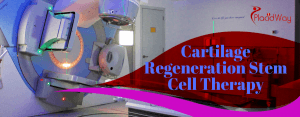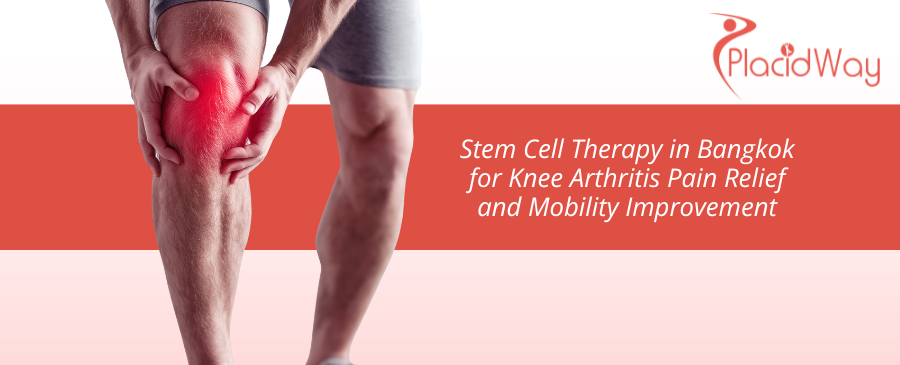
Cartilage Regeneration Stem Cell Therapy
Cartilage Regeneration by using stem cell therapy is a remarkable breakthrough in the field of healthcare. This treatment procedure has opened new doors of hope for people suffering from osteoarthritis. Embryonic stem cells are utilized to treat chronic osteoarthritis with an effective cure.
People at a later age, usually after the age of 60 suffer from osteoarthritis. This is the condition that restricts their movement and can be chronic enough to completely disable the mobility of few joints of the body. This mainly occurs in the joints that have been most active in a person’s life like knee joints, finger joints, hip joints, and joints of the lower spine.
As per a famous resort study funded by Arthritis Research UK and led by Sue Kimber, a professor in the Faculty of Life Sciences at Manchester, embryonic stem cells can be developed and transformed into new tissue or cartilage cells.
Cartilage Regeneration
Cartilage is the connective tissue that joins the joints. It is found in the bones, ear, nose, rib cage, inter-vertebral discs, bronchial tubes, and many other joints. It is a soft and flexible substance that does not contain any nerves (aneural) or blood vessels (avascular).
The articular cartilage suffers most damages in people above 60 years and in people who were actively involved in physical activities in their younger days. The load-bearing joints in the hips and knees usually have articular cartilage that tends to get damaged due to compressions and frictions.
The common treatment related to these two is pain minimization to improve mobility. Most people suffer from injured knees that lead to the damage of cartilage. It is also called cartilage lesions of the knee or localized cartilage damage. Such injuries can cause osteoarthritis.
Unipolar and bipolar lesions for single and double bone respectively by using embryonic stem cells (hESCs) have gained much approval in the medical world. It has delivered proven results in treating disabilities with utmost satisfaction. Embryonic stem cells (hESCs) have the capacity to repair cartilage much effectively than any other medical procedure.
Human Embryonic Stem Cells
The procedure of cartilage regeneration by using embryonic stem cells is still at a developing stage. This is why many people suffering from osteoarthritis are yet to be aware of this therapy and its benefits. We have bought forward some of the interesting facts related to cartilage regeneration using stem cell therapy. Let us have a look on them one by one.
- Embryonic stem cells are popularly called pluripotent stem cells since they have the ability to differentiate it into three germ layers. These layers are Ectoderm, Endoderm, and Mesoderm.
- Ectoderm refers to epidermal tissues and the nervous system.
-
- Endoderm refers to the gastrointestinal tract, interior stomach lining, and the lungs.
- Mizoram refers to bone, muscle, urogenital, and blood.
- Embryonic stem cells (ES cells) used for cartilage regeneration are normally derived from the inner cell mass (ICM) of a blastocyst, which is a structure that is formed during the early developmental days in humans and mammals.
- Embryonic stem cells utilized for the procedure of cartilage regeneration are taken from the inner cell mass (ICM) of a blastocyst. The blastocyst is the first formation of a mammal and subsequently developed into the embryo.
- Different embryonic cells have different abilities to develop into any type of cell.
- Embryonic stem cells can be utilized for various cell replacement therapies to treat heart, kidneys, liver, nerves, pancreas, lymphatic vessels and blood vessels, and bone marrow cells.
- Embryonic stem cells are used to confirm the type of genetic or chromosomal disorders affecting the cartilage in the joints. It also takes part in repairing the DNA damage of the body.
- The clinical trial of embryonic stem cells was initiated on 23rd January in the year 2009 after the approval of the U.S. Food and Drug Administration (FDA). The first clinical trial the phone was based on the transplantation of oligodendrocytes present in the brain and spinal cord. The embryonic stem cells develop in this experiment was used to cure people suffering from spinal cord injury.
Future Prospects Cartilage Regeneration
The utilization of embryonic stem cells to obtain cartilage regeneration is a promising treatment option for everyone suffering from osteoarthritis. Deep therapy will increase mobility in people at their later age and enhance the quality of their lives. Various Research and studies going on in this section of medical treatment will table of unlimited opportunities for people to defeat immobility and pain.
If the information here is not enough for you to take a decision, or you want to ask us a question, or maybe you need assistance, let us know by using the button below.
Contact PlacidWay
Stem cell treatments, research, and technology are no longer relegated to sci-fi novels or movies. Research and development of stem cells also go way beyond the use of embryonic stem cell therapy, the potential of cloning human beings and the moral and ethical controversies surrounding such developments.





